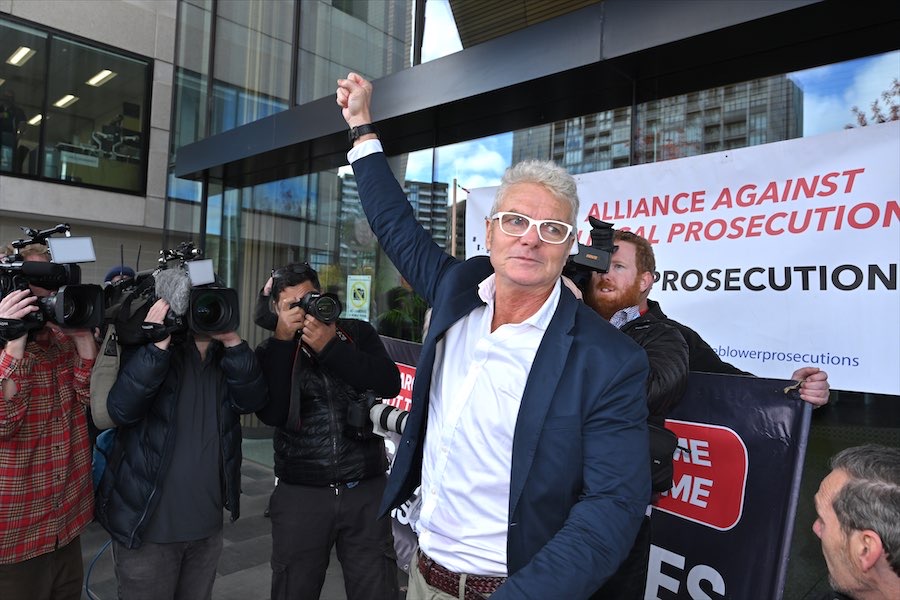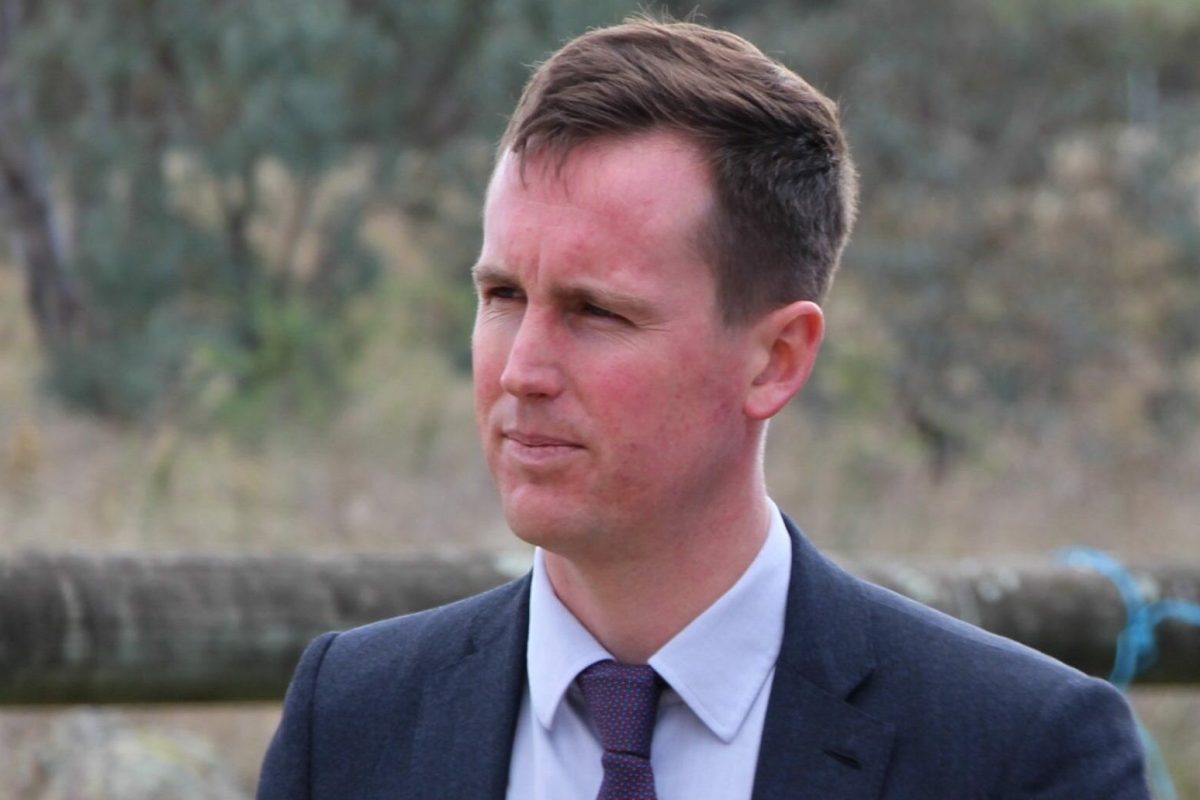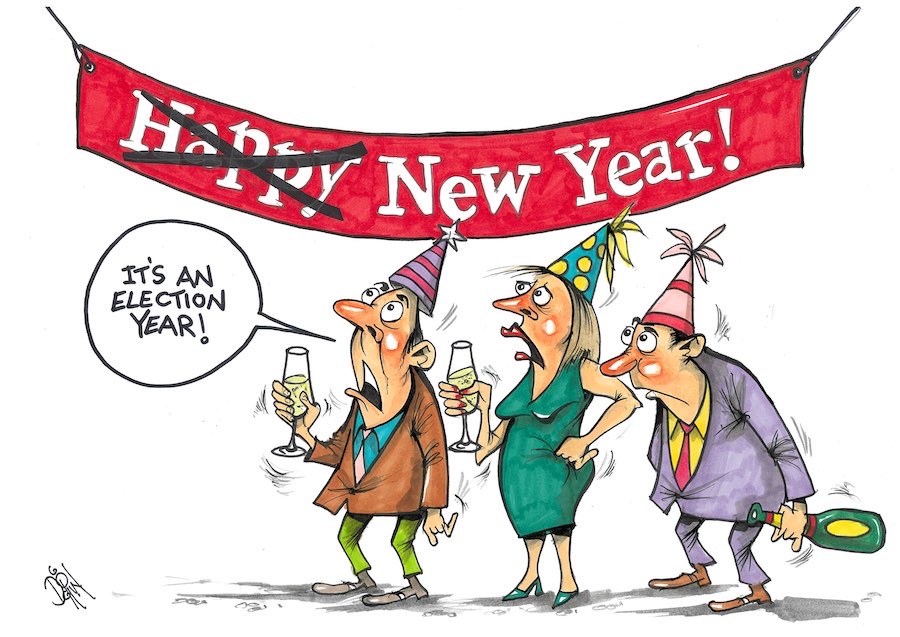
Whistleblower David McBride goes to prison – and Australian democracy takes a hit, says PETER GRESTE.
Governments and their agencies wield awesome power. At times, it is quite literally the power over life and death. That is why in any functioning democracy, we have robust checks and balances designed to make sure power is exercised responsibly and with restraint.
So, what message does a sentence of more than five years in prison for someone who exposed credible allegations of war crimes by Australian soldiers send?
On Tuesday, ACT Supreme Court Justice David Mossop despatched the former military lawyer David McBride to prison for five years and eight months, for passing classified military documents to journalists. Those documents formed the basis of the ABC’s explosive “Afghan Files” investigation, revealing allegations that Australian soldiers were involved in the unlawful executions of unarmed civilians.
It is hard to think of any whistleblowing more important.
McBride’s case forced us to confront the way our own troops had been conducting the war in Afghanistan, as well as the government’s ongoing obsession with secrecy over the public interest.
McBride had been concerned about what he saw as systemic failures of the SAS commanders, and their inconsistency in dealing with the deaths of “non-combatants” in Afghanistan. In an affidavit, he said he saw the way frontline troops were being “improperly prosecuted […] to cover up [leadership] inaction, and the failure to hold reprehensible conduct to account.”
He initially complained internally, but when nothing happened he decided to go public. In 2014 and 2015, McBride collected 235 military documents and gave them to the ABC. The documents included 207 classified as “secret” and others marked as cabinet papers.
It is hard to deny the truth of what McBride exposed. The Brereton Inquiry later found what a parliamentary briefing described as “credible information” of 23 incidents in which non-combatants were unlawfully killed “by or at the direction of Australian Special Forces”. The report said these “may constitute the war crime of murder”.
Brereton went on to recommend prosecutions of the soldiers who were allegedly responsible. Yet, the first person to face trial and be sent to prison in the whole debacle is not any of those who might have been responsible for alleged killings, but the man who exposed “misconduct” in the Australian Defence Force.
Much has been made of McBride’s reasons for going to the media, but this focus on motives is a form of misdirection. Whistleblowers take action for a host of reasons – some of them less honourable than others. But ultimately, what matters is the truth of what they expose, rather than why.
That is why we recognise media freedom as an essential part of a healthy democracy, including the right – indeed the responsibility – of journalists to protect confidential sources. Unless sources who see wrongdoing can confidently expose it without fear of being exposed and prosecuted, the system of accountability falls apart and gross abuses of power remain hidden.
It is also why the formal name for Australia’s whistleblower protection law is the “Public Interest Disclosure Act”.
This law is designed to do what it says on the tin: protect disclosures made in the public interest, including those made through the media. It recognises that sometimes, even when the law imposes certain obligations of secrecy on public servants, there may be an overriding interest in exposing wrongdoing for the sake of our democracy.
As a highly trained and experienced military lawyer, McBride knew it was technically illegal to give classified documents to the media. The law is very clear about that, and for good reason. Nobody should be able to publish government secrets without a very powerful justification.
But nor should the fact that a bureaucrat has put a “secret” stamp on a document be an excuse for covering up serious crimes and misdemeanours.
In McBride’s case, the judge accepted the first premise, but rejected the second.
This is why my organisation, the Alliance for Journalists’ Freedom, is advocating for a Media Freedom Act. The act would oblige the courts to weigh up those competing public interests – the need for secrecy in certain circumstances against the sometimes more compelling need to publish and expose wrongdoing – rather than assume secrecy as a given.
It is hard to overstate the impact this case is likely to have on anybody with evidence of government misdeeds. Do they stay quiet and live with the guilt of being complicit, or do they speak up like McBride and others, and risk public humiliation, financial ruin and possibly even prison?
Attorney-General Mark Dreyfus has committed to reforming the whistleblower protection regime, and before the last election, promised to set up an independent Whistleblower Protection Authority. Those commitments are laudable, but they ring hollow while McBride sits in prison and another prominent whistleblower, Richard Boyle from the Australian Taxation Office, faces trial later this year.
It is hard to see the former military lawyer being locked in a cell, and say Australia is either safer, or better because of it.![]()
Peter Greste, Professor of Journalism and Communications, Macquarie University. Republished from The Conversation.
Who can be trusted?
In a world of spin and confusion, there’s never been a more important time to support independent journalism in Canberra.
If you trust our work online and want to enforce the power of independent voices, I invite you to make a small contribution.
Every dollar of support is invested back into our journalism to help keep citynews.com.au strong and free.
Thank you,
Ian Meikle, editor





Leave a Reply